Judgment Day. The eve of. Part of 2
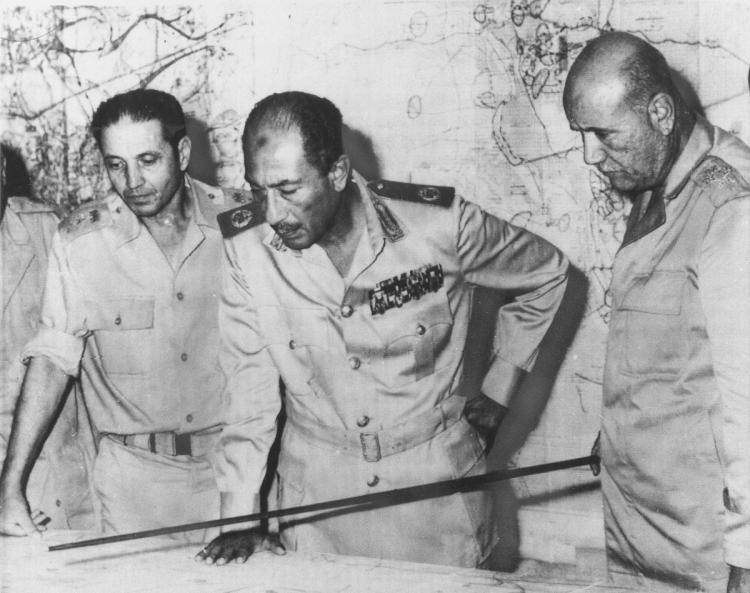
The Egyptians forced the Suez Canal Forcing Plan as early as January 1973. The operation was called "Badr" by association with one of the stages of the war of the Prophet Mohammed with the infidels, which ended with the capture of Mecca. The war was initially supposed to start in May, but then, for political reasons, was postponed to October. The situation was more complicated with Jordan. A trilateral meeting of Arab leaders took place in Cairo 12 September 1973.
Hafez al-Assad (father of Bashar al-Assad), who recently became the Syrian president as a result of the military coup in 1971, and Anwar Sadat did not disclose to King Hussein all his plans. First, they wanted to make peace with Hussein after the troubles with the PLO in 1970. The king clearly remembered the attempted coup d'etat - Black September, when he, in order to maintain power, with his unshakable hand crushed about 10 thousand Palestinian militants Yasser Arafat into the cabbage. He did not forget the Syrian Tanks on their land, but reconciled and restored diplomatic relations with Syria. After that, he was hinted that another war with Israel is possible, without dates, in principle. Hussein flinched. He had already lost half his kingdom in the Six Day War, is it worth the risk again? The maximum that managed to persuade the matured and more cautious king was to promise some fraternal support on one of the fronts. And Hussein made this promise more out of necessity than out of special desire. The Hashemite Kingdom in general has always been a black sheep in the Arab world, like Romania or Yugoslavia in a socialist camp.
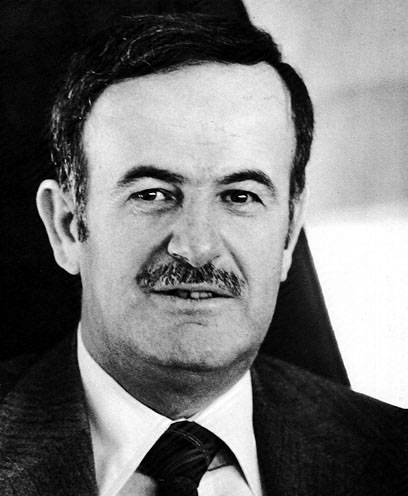
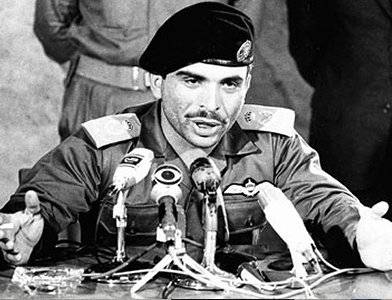
Convinced of the goodwill of Jordan, the Egyptians and Syrians continued their preparations for war. They had already agreed to launch the invasion at the same time on October 6, the tenth day of the holy Muslim month of Ramadan, which coincided with the Day of Judgment, Yom Kippur on the Jewish calendar. This day seemed very convenient to the Arabs. On this holiday, the Jews do not eat, do not drink, do not work, do not drive cars and tanks, all institutions are closed, the country is praying. It is unlikely that Jews will be expected to attack during Islamic Ramadan. In addition, the Arabs took into account that the election campaign in full swing in Israel, as the next elections are scheduled for the end of October. And also, on the night of 6 on 7 of October, a full moon was expected, which means that the guidance of crossings across the channel will be facilitated. In general, Yom Kippur, Ramadan, the full moon, the elections - everything was against the Jews.
Even before the meeting with Hussein, the commander-in-chief of the Egyptian armed forces, General Ismail Ali of September 6, led the troops of Egypt and Syria on alert. Since September 24, Syrian tanks and artillery began to gradually and casually pull themselves up to the three lines of defense at the Golan Heights. The Syrians and Egyptians sat down to set an hour for the attack. Let's start the war at six o'clock in the evening, the Egyptians suggested. We will advance from west to east. The sun will shine right in the face of the Jews and in the back of the Egyptian army, our soldiers quietly force the channel. At night, under the cover of darkness, we will build bridges. No, let's start the war in the morning, the Syrians offered in response. We will advance from east to west. The sun will shine in the face of the Jews and in the back of the Syrian army, and we will have a whole day to break the Israeli defense on the Golan Heights. They lined up for a long time, like traders in the eastern bazaar, and finally bargained for 14: 05. This time became known only on October 1, less than a week before the start of the war.
Meanwhile, Israeli intelligence, the army, political leaders and the whole society lived as if, apart from annoying Palestinian terrorists, all the other Arabs moved to Mars. The people relaxed. Psychologically, this is understandable. It is impossible to live all your life in suspense and waiting for the next blow from the corner. It is quite natural that after an impressive victory in the Six-Day War, the Jews broke down. But they broke down excessively, including in the army.
A small state can not keep a large army - can not afford. The system of reservists and monthly reserve fees once a year would be ideal if everything that was prescribed was carried out. The aphorism is well known: “A civilian is the same military man who is on vacation for 11 months.” Each backup connection had its own warehouse. In this warehouse, in the event of war, everything that was needed was needed to turn kibbutzniks and lawyers into soldiers - from laces to tanks. At the call, the men had to come running, take off civilian pants, grab grenades and be ready to get to the front within a few hours. Tanks in the lubricant had only to refuel - and on the front. In practice, not everything turned out so amazingly.
Concerned about the concentration of Syrian tanks and artillery at the ceasefire line, September 26 Moshe Dayan traveled to the Golan Heights.

He sensed rather than realized that something was being started, but he still didn’t believe in a full-scale war. Therefore, on his return, he ordered an increase in the number of tanks on the Golan from 70 to 100, and a little later - to 117. How these 117 tanks were supposed to hold back about 1000 Syrian tanks - is unclear.
No matter how covertly the Arabs prepared for war, the movement of hundreds of tanks and armored personnel carriers is impossible to notice, and finally, five days before the war, vague suspicions that plagued Dayan since his trip to the Golan began to crawl in the heads of the generals and ministers (retired generals) 26 September. In addition, the American reconnaissance satellite SAMOS photographed the concentration of Egyptian troops at the canal, and these photos lay on the table to Henry Kissinger, the US Secretary of State.
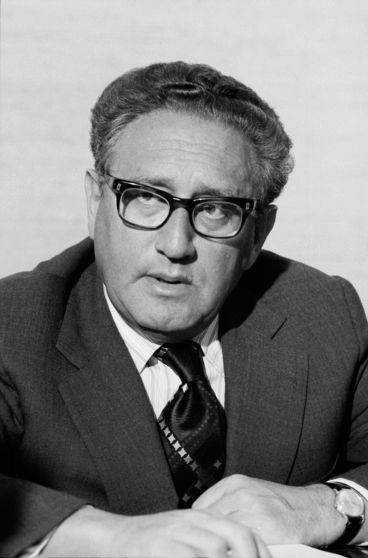
(The position of US Secretary of State is generally similar to that of the Secretary of State for most other states, but the Secretary of State usually has more political weight than just the Minister of Foreign Affairs. At the same time, the Secretary of State is the most senior member of the US Cabinet and is ranked third in the executive hierarchy The authorities of the country after the president and vice-president of the United States.) UN observers drew attention to the Egyptian officers at the channel, instructing their soldiers. Finally, on October 2, the Syrians announced mobilization.
American scouts spotted and increased activity at sea. Under the guise of carrying out planned combat training, the deployment of the Arab naval forces was carried out. The Syrian ships began patrolling in the areas of Latakia and Tartus, the Egyptian - at Alexandria, Port Said and Suez. The Israeli naval forces began to send messages about Arab evolutions at sea, and this was reported to the top. On the approaches to the Israeli naval bases and ports, patrol ships were deployed. Both sides took a number of measures to protect their shipping and strengthened intelligence in the maritime sector. By the evening of October 5, the main forces of the fleets of the warring parties were at sea and were ready for hostilities.
This is what the USSR Ambassador to Egypt Vladimir Vinogradov wrote:
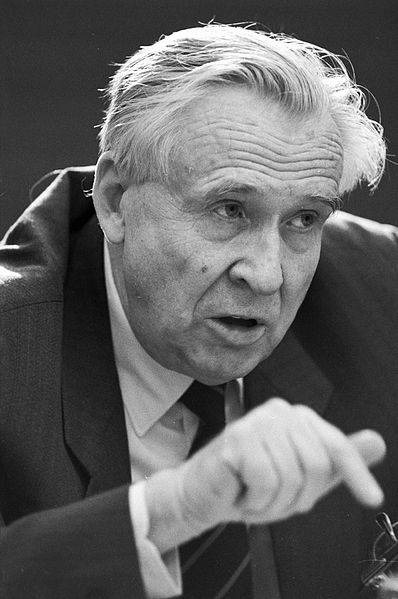
Late Wednesday night, October 3, Defense Minister Moshe Dayan, Deputy Prime Minister Yigal Allon, Minister without portfolio, Israel Galili, Chief of Staff David Elazar and one of the intelligence chiefs gathered at Golda Meir.
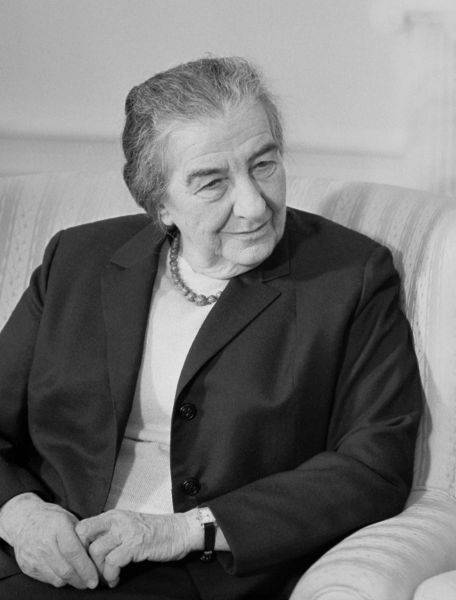
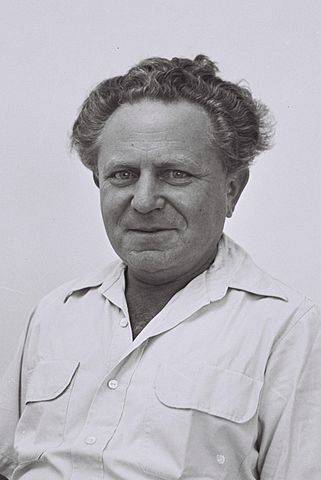
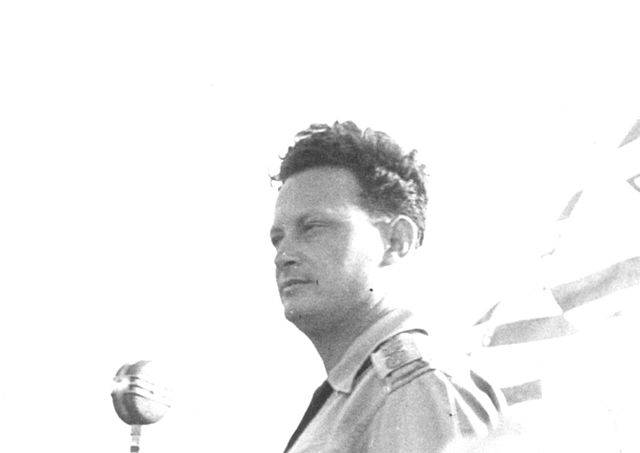
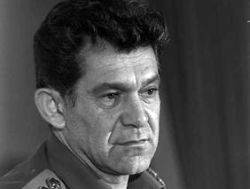
Dayan finally hooked the thread in scattered intelligence. He still believed that there should be no big war. The Egyptians sit behind the canal, but the Syrians are just behind a strip of demilitarized stones and bushes. Perhaps, Dayan concluded, in a month or two or three the Syrians could launch an independent attack on Israel, trying to regain the Golan heights, or at least part of them. Unlike Egypt, Soviet military experts and advisers were still in Syria, as well as Cuban vehicles assigned to service T-62 tanks. Talked and parted. We decided to meet again after the day of Yom Kippur.
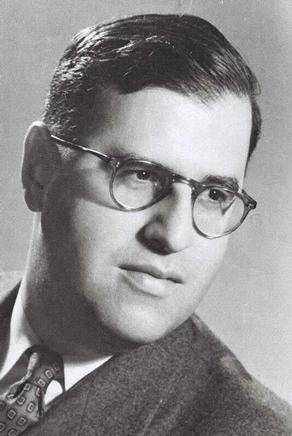
Abba Eban - Israeli Foreign Minister was abroad in New York. He met on October 4 at the UN with his colleague Henry Kissinger, who already knew about the concentration of Egyptian and Syrian troops on the borders of Israel. And, nonsense, Eban calmed him, our scouts say it's okay.
The Egyptians conducted a classic campaign of misinformation, and it proved effective. A specially created department conducted this campaign in such a way as to confirm such conclusions, not only in Israel, but also in Washington, and in general everywhere where it made sense. This campaign was based on a thorough analysis of ideas directly expressed from time to time by Israeli commanders and reflecting the general opinion prevailing in Israel. For example, Dayan’s statements about the unpreparedness of the Egyptians and Rabin’s analytical conclusions, which underestimated the prospects for war, were widely reported in the press along with assessments that underscored the lack of preparedness of the Egyptian army. Claire Hollingworth, a correspondent for the London newspaper The Daily Telegraph on defense issues, published a correspondence from Cairo in which he described the poor equipment of the Egyptian army and, therefore, its lack of preparation.
There were many serious signs pointing to Egypt’s readiness to attack, but none of them could compete with the plan of disinformation. If in 1967, Nasser screamed from any convenient rostrum that the hour of reckoning for the Jews was about to come, now from Cairo and Damascus one could hear aloud thoughts about the need to search for peaceful ways. From time to time, Egyptian politicians traveled to capitals of various countries, talking about the need for peace initiatives. The Egyptians negotiated with the Americans about laying the pipeline along the non-functioning Suez Canal. It was supposed to use it for the distillation of oil from tankers in the Red Sea to the Mediterranean seashore.
The Egyptian Cabinet met on October 3 for a regular meeting and discussed exclusively the problems of the Egyptian-Libyan Union. The day before the war, October 5, Egyptian Foreign Minister Muhammad al-Zayat met with Kissinger and sweetly chatted with him about possible peaceful prospects. The Egyptian newspaper Al-Ahram flashed the message that a group of officers was going on a pilgrimage to Mecca. On 8 October in Cairo, a meeting was scheduled with the Minister of Defense of Romania. Cairo and Damascus shone with lights. No one glued paper strips to the windows, no one installed anti-aircraft guns in city parks. Knowing that the Israelis were watching the Syrian territory from an early warning point on Mount Hermon, the Syrians lined up all the arriving and arriving equipment in defensive positions, dug trenches, and set artillery to conduct barrage. In 30 minutes before the outbreak of war, Egyptian soldiers hung about the Suez Canal without weapons and helmets ...
On Friday, October 5th, intelligence came to Dayan and almost immediately to Golda Meir that families of Soviet advisers in Syria packed their bags in a hurry and left the country. Eban was still in New York, and they called him immediately, asking him to meet with Kissinger again. The reason for the meeting was not indicated, but promised to send complete information. Eban was upset; Kissinger might already be in Washington. Later, on the night of October 5 to 6, an undercover message arrived that the war would begin on Saturday. October turned out to be stuffy, Golda Meir did not yet have an air conditioner at home, and from such News she got soaked in a minute. The prime minister ordered the military to meet early in the morning at Yom Kippur. At 6 a.m. (5 p.m. in New York), Eban was sent materials about the concentration of Arab armies on the border. He was asked to meet with Kissinger and through him to convey to the Arabs that Israel was not going to attack them, let them calm down. Eban’s meeting with Kissinger did not work, but these materials were sent to the US Secretary of State on October XNUMX.
October 6 in the morning 8 Dayan and Elazar came to Meir. Two venerable military started a dispute in front of Meir about the need for mobilization. Each interpreted in his own way the considerations of Major-General Eliyahu Zeira, the chief of the military intelligence "Aman", that war with Egypt was "unlikely." Chief of the General Staff Elazar believed that it was necessary to immediately declare a total mobilization of all reservists, all helmets on the head and a run to Sinai and Golan. Dayan believed that it was necessary to mobilize all the pilots and only two divisions, one for each front, and in the Air Force to declare full combat readiness.
Golda Meir military academies did not finish. She wrote sarcastically in her memoirs: “Lord, I thought, I have to decide which of them is right!”.
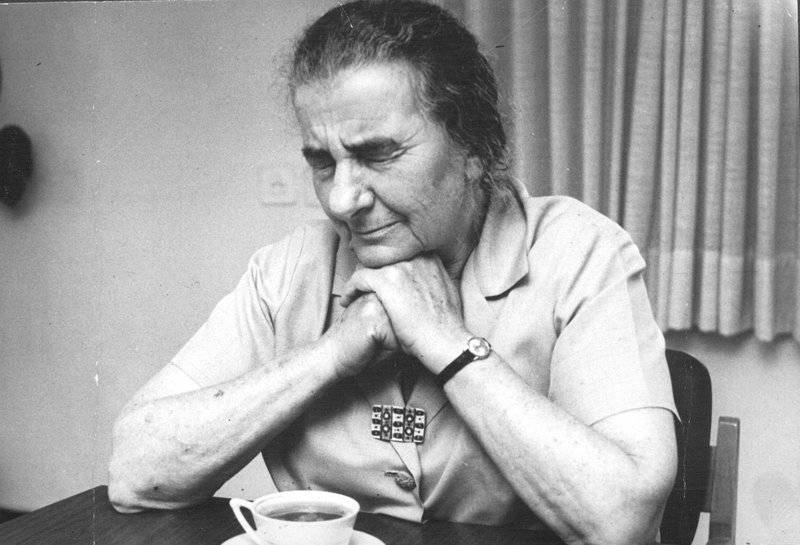
Mobilizing a false alarm will cost the state a pretty penny, she thought to herself. - The state is in crisis, prices are rising, we are too attached to the Western world. There is a crisis in capitalist countries, and we also have a crisis. Dayana can be understood. On the nose, elections to the Knesset, and he assured the people that there would be no new war. If all the people are being blown up now, and then it turns out that they were talking about another provocation on the border, what do we say to the people? ”Then Golda Meir firmly said:“ Declare full mobilization according to the Elazar plan. ” In fact, Elazar was instructed to mobilize 100 thousand people, but since no one counted on the heads at that moment, he decided to mobilize everyone he had time.
After this meeting, the Prime Minister showed an energy rare for an 75-year-old woman. She quickly sent back to the US the home of the Israeli ambassador, Simhu Dinits. She called opposition leader Menachem Begin and told him about what was happening. She appointed a cabinet meeting at noon and called for the American ambassador Kenneth Keating, who was informed of all intelligence data and asked to immediately transfer everything to Washington.
All historians agree that the mobilization was announced very late. This fact has long been firmly established. Despite Shabbat and Yom Kippur, reservists were quickly alerted by telephone, radio, and messengers. The men jumped out of houses and synagogues and ran to the recruiting centers to change into green. The delay arose with the transport. According to the mobilization schedule, civilian buses were to deliver soldiers to the front. At noon on Friday, the drivers were instructed to stay in the garages. Then at 4 one o'clock in the afternoon the alarm was canceled, and the drivers went home to get ready for the holiday. The cars were checked, filled with gas and prepared for possible long trips. On the morning of October 6, however, when the mobilization was announced, orders reached the bus cooperatives late. As a result, reservists who were already ready for battle had in some cases to wait for hours for buses to get to the front. Many soldiers, mostly officers, came to the front line or to the assembly point of their units in their own cars.
Meanwhile, Dayan and Elazar brought the number of tanks in the Golan to 177, and in Sinai - to 276. On the Golan Heights were Israeli 44 against Syrian 1000 guns. Along the channel were 48 Israeli field guns against 1100 Egyptian guns.
USSR Ambassador to Egypt Vladimir Vinogradov:
In fact, the exact date and time of the attack was first reported to Moscow on October 4, when Hafez Asad told the Soviet ambassador to Damascus N. Mukhitdinov about this. Later Vinogradov was instructed to inform Sadat that "the decision to start a war is an Egyptian decision, but the USSR will fulfill all its obligations and support the rights of the Arabs by all means."
Here is the reaction of A. Gromyko:
At noon, the Israeli Cabinet met for a meeting. Of the retired generals, in addition to Dayan and Allon, there was Haim Bar-Lev, the minister of trade and industry. Shimon Peres, now Minister of Transport and Communications, previously worked as the Director General of the Ministry of Defense.

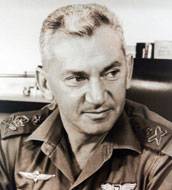
Meir told about the request of the American Ambassador Keating not to start the war first. Two hours passed in a tense but empty debate. Military Secretary Golda Meir, Brigadier-General Israel Lior, suddenly opened the door: “The war has begun!” Almost immediately the air-raid sirens sounded ...
(To be continued.)
Sources:
M. Shterenshis. Israel. History of the state. Xnumx
ARABO-ISRAELI WAR OF 1973 OF THE YEAR. Chronicle of events on historical documents.
Heikal, M. The Road to Ramadan. London - New York, Collins, 1973.
P.Lyukimson. Secrets of the past war ...
Duke H. Arab-Israeli Wars: From the War of Independence to the Lebanese Campaign. T.2., 1986.
Information